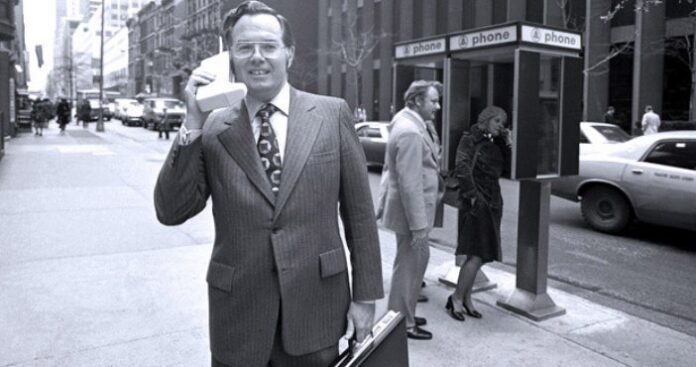Editor’s Note: RCR Wireless News goes all in for “Throwback Thursdays,” tapping into our archives to resuscitate the top headlines from the past. Fire up the time machine, put on the sepia-tinted shades, set the date for #TBT and enjoy the memories!
Oh, the days of vicious tussles over the CDMA/GSM split
WASHINGTON-Rep. Connie Morella (R-Md.), chairwoman of the House Science subcommittee on technology, is pressing the Clinton administration for support to prevent U.S. companies from being unfairly muscled out of the international standards-setting process by Europeans for third-generation wireless communications. “I am not supporting a specific standard. I do, however, want to ensure that all American-developed standards receive a fair hearing and fair consideration in this process,” said Morella in a recent letter to U.S. Trade Representative Charlene Barshefsky. Morella, who is considering holding hearings this month on international standards-setting, asked Barshefsky to respond this week to several questions on the 3G wireless standards-setting issue. That Congress is now addressing the issue reflects the urgency of the matter. Billions of dollars are at stake and the global standards-setting process is entering a critical phase. The United States, the European Union and Japan must submit third-generation wireless standard proposals to the Geneva-based International Telecommunications Union in June. There is concern among wireless equipment manufacturers including Motorola Inc., Qualcomm Inc., Northern Telecom Ltd., Lucent Technologies Inc. and others that a Eurocentric 3G wireless standard would favor Sweden-based L.M. Ericsson and Finland-based Nokia Corp. and leave U.S. firms competitively disadvantaged in the global market. … Read more
Meanwhile, DoCoMo just plows ahead with CDMA
WARSAW, Poland-The GSM MoU Association and Japan’s largest wireless communications operator, NTT DoCoMo, have signed an agreement regarding the development of third-generation mobile phone technology. The GSM MoU believes the agreement underlines the global scale of unification behind an evolved Global System for Mobile communications platform-wideband Code Division Multiple Access technology-as the leading technology choice for 3G systems and services. The agreement, said the GSM MoU, will ensure close cooperation and sharing of information between two key organizations central to realizing one global standard for mobile communications. … Read more
Pagers wreak havoc in China
Since paging became available in 1983, the number of paging operators in China has mushroomed to more than 2,800, with more than 40 million customers. According to the Chinese language China Reform Daily, 70 million pager users are expected by 2000. China Unicom Paging Corp. has built paging networks in 103 cities, of which 27 are operational-with a capacity of 3.63 million but only 700,000 subscribers. In 1998, China Unicom paging networks in 58 cities will be cut over, which should increase the number of subscribers to 2 million. Glenayre Technologies Inc. is supplying Unicom paging systems based on the 280 MHz FLEX standard to be installed in 21 cities. Paging competition is fierce, and price has become the major weapon. Three years ago a Motorola pager with Chinese-character display cost around US$240; now the price has come down to US$120, including a one-year service fee. Lost pagers rarely are returned to their owners since it is cheap and easy to change the number at the paging companies’ service centers. Nearly 100 different pager models are sold in China-more than 95 percent of them foreign brands. Motorola reigns supreme with 70 percent of the paging market. … Read more
Products: Use your car speakers hands-free via a cassette!
Vivox USA Inc. plans to begin shipping its patented hands-free car kit, the VL-1E7 for GE/Ericsson 6xx/7xx series cellular phones this month. The system uses a vehicle’s cassette player to amplify the sound from the cellular phone through the existing speakers. The kit includes a special cassette, an ear piece for private listening and a pouch for transport and storage. The VL-1 costs about $50. … Read more
I can see that Russian market from my house
LONDON-After years of uncertainty and confusion, the Russian wireless telecommunications market finally seems set to come out of hibernation and deliver what investors and analysts have been expecting for some time. There’s certainly possibilities for growth following a slow start. At the end of 1997, Russia had only a 0.3-percent cellular penetration with 438,000 subscribers, a 109-percent increase compared with 1996. Analog still is the largest cellular platform in Russia, with approximately 71 percent of the market; the remaining users comprise GSM (Global System for Mobile communications) subscribers. In terms of total number of access lines, Russia is the seventh-largest market in the world. By the end of 1997, there were approximately 27 million telephone lines connected to local exchanges, out of a total population of approximately 150 million. Historically, the low penetration in Russia is due to several factors, including low digitization (less than 15 percent), service exclusivity, tariff imbalances and low international usage. … Read more
Check out RCR Wireless News’ Archives for more stories from the past.

